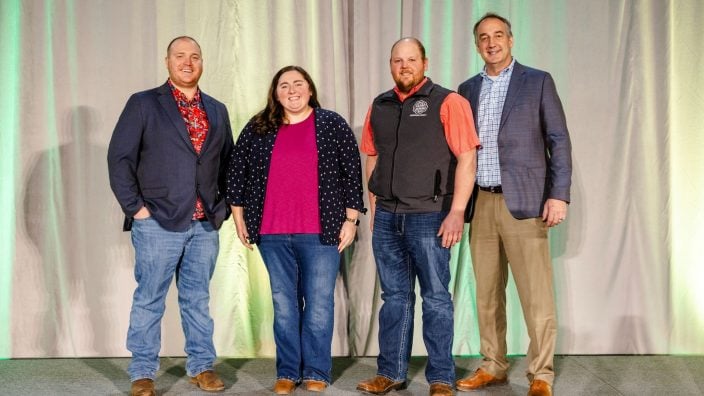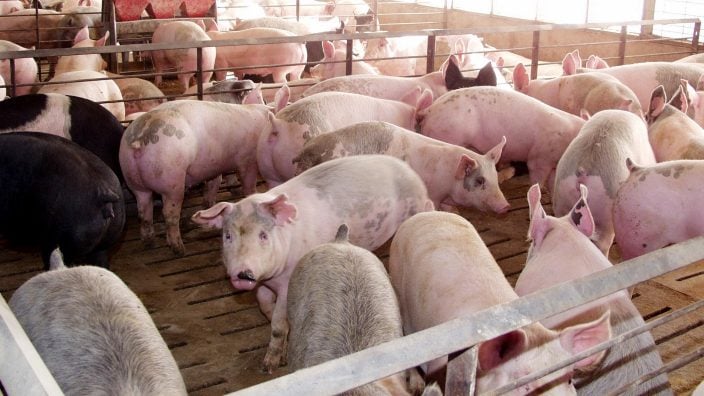Applications for Ohio Farm Bureau Health Plans now available
Members have three ways to apply: contacting a certified agent, calling 833-468-4280 or visiting ohiofarmbureauhealthplans.org.
Read MoreA recent court ruling will reduce pork line speeds through the New Swine Inspection System (NSIS). According to some industry analysts, if this decision is left unchallenged before June 30, it will result in a 2.5% loss in pork packing plant capacity nationwide, and more than $80 million in reduced income for small U.S. hog farmers. The impact is even higher in Ohio and surrounding states due to reliance on regional meat packing plants that have been utilizing the higher line speeds.
“With over 25% of the nation’s hog slaughter capacity enrolled in the NSIS program, we are concerned over the immediate, adverse impact this would have on hog producers as it would significantly decrease slaughter capacity in these plants,” wrote American Farm Bureau President Zippy Duvall in a letter to USDA Secretary Tom Vilsack. “The hog industry has suffered greatly over the past several years, combating market volatility stemming from African Swine Fever, packing capacity and supply chain issues due to the COVID-19 pandemic, and trade implications from some of our country’s largest pork importers. Reduced slaughter capacity in plants is yet another challenge producers must endure, threatening their livelihoods and ability to provide the food our nation depends on.”
Farm Bureau is urging the Biden administration to use all means necessary to ensure that producers have the surety that their current capacity and contracts with the companies and plants affected remain intact at their current levels.
At the state level, Ohio Farm Bureau has been engaging directly with stakeholders impacted by this ruling and is working with them to seek out solutions.
“Our farmers cannot withstand another financial hit. Just as we are returning to normalcy, another looming disaster threatens their livelihood and prosperity,” said Cheryl Day, executive vice president of the Ohio Pork Council. “The court ruling will affect Ohio’s pork producers and trickle down throughout the entire economy. The state’s hog production generates 11,500 jobs and an estimated $439 million of personal income. All of this could be in jeopardy if this damaging court ruling stands.”


Members have three ways to apply: contacting a certified agent, calling 833-468-4280 or visiting ohiofarmbureauhealthplans.org.
Read More

Legacy nutrient deductions enable new farmland owners to claim deductions on the nutrients within the soil on which healthy crops depend.
Read More

Farmers, agribusinesses and community members are encouraged to nominate their local fire departments for Nationwide’s Nominate Your Fire Department Contest through April 30.
Read More

Introduced by Sen. Paula Hicks-Hudson, SB 120 would establish the Urban Farmer Youth Initiative Pilot Program.
Read More

Gases, vapors, and fumes can all create risk. How can we measure and protect ourselves from them?
Read More

The Ohio Farm Bureau’s Young Agricultural Professionals State Committee has named its 2026 leadership and the individuals who will be serving on the state committee for 2026-2028.
Read More

The Ohio Farm Bureau Foundation has multiple scholarships available to Ohio students from rural, suburban and urban communities who are pursuing degrees with a connection to the agricultural industry.
Read More

With 100% bonus depreciation now permanent, farmers can deduct the full cost of a new agricultural building in the year it’s placed in service.
Read More

Lincoln Deitrick was named the Outstanding Young Farmer, Denver Davis won the Excellence in Agriculture Award, and Margaret Houts won the Discussion Meet.
Read More

Michelle Downing of Franklin County has been named finance director of county operations for Ohio Farm Bureau.
Read More